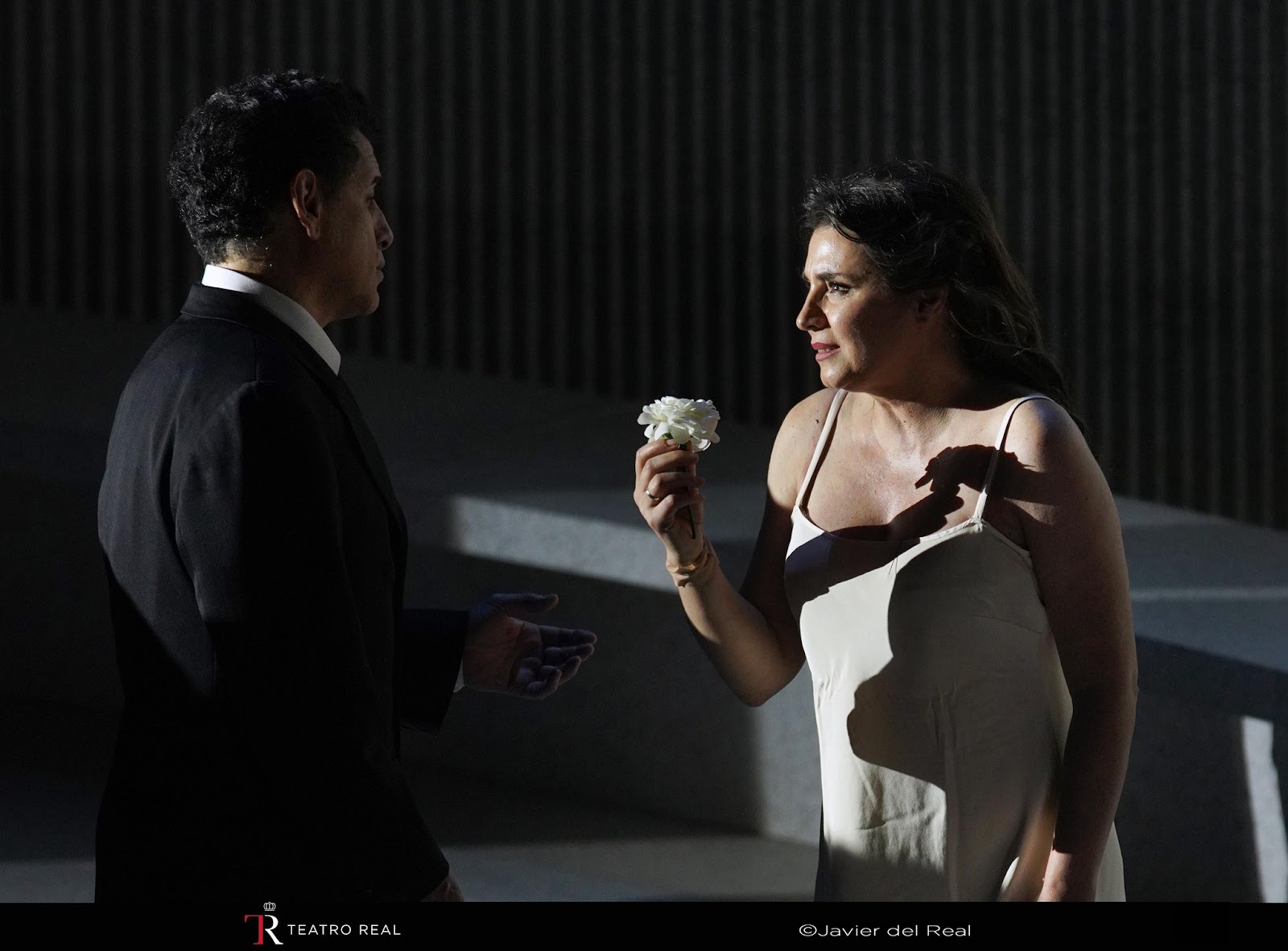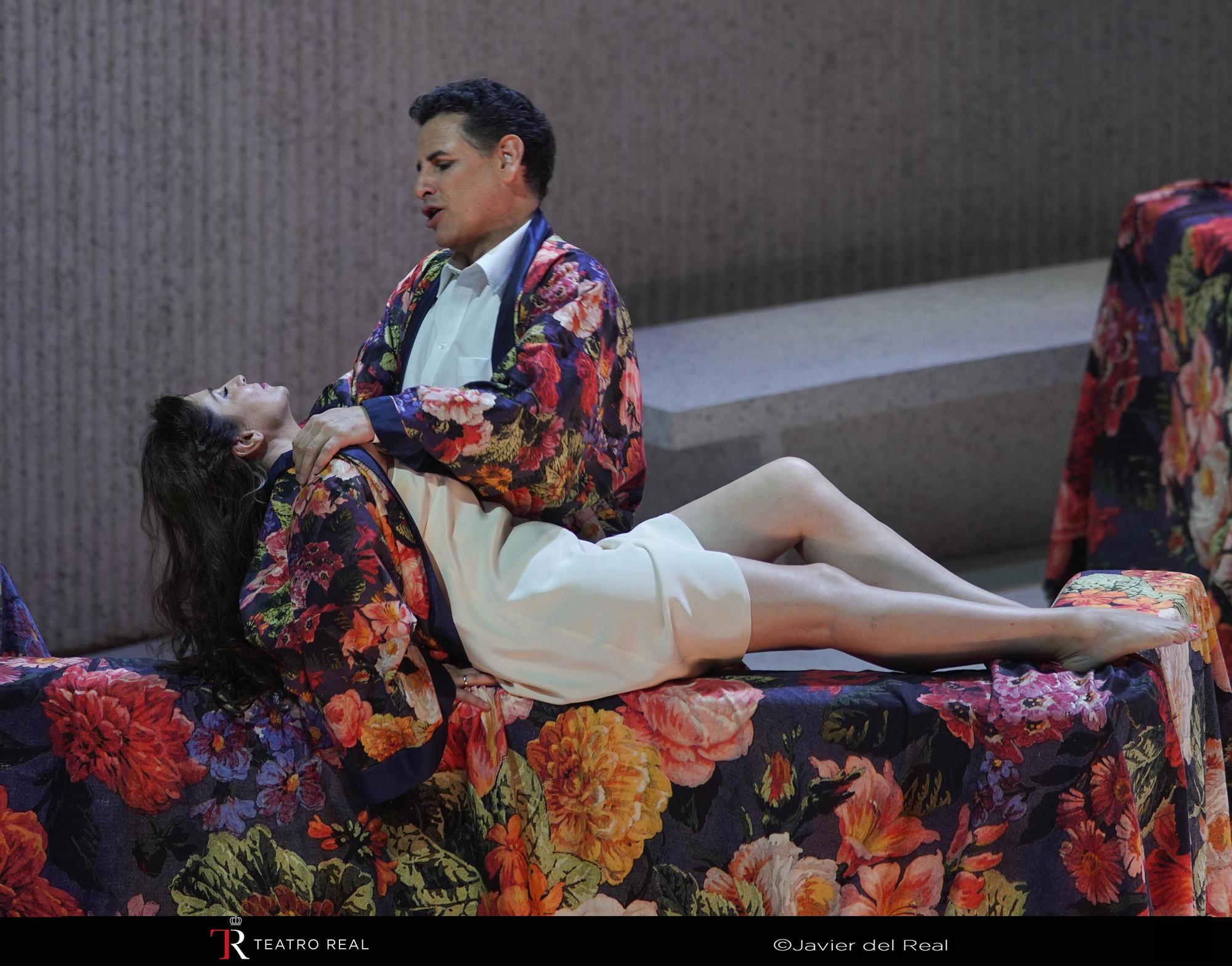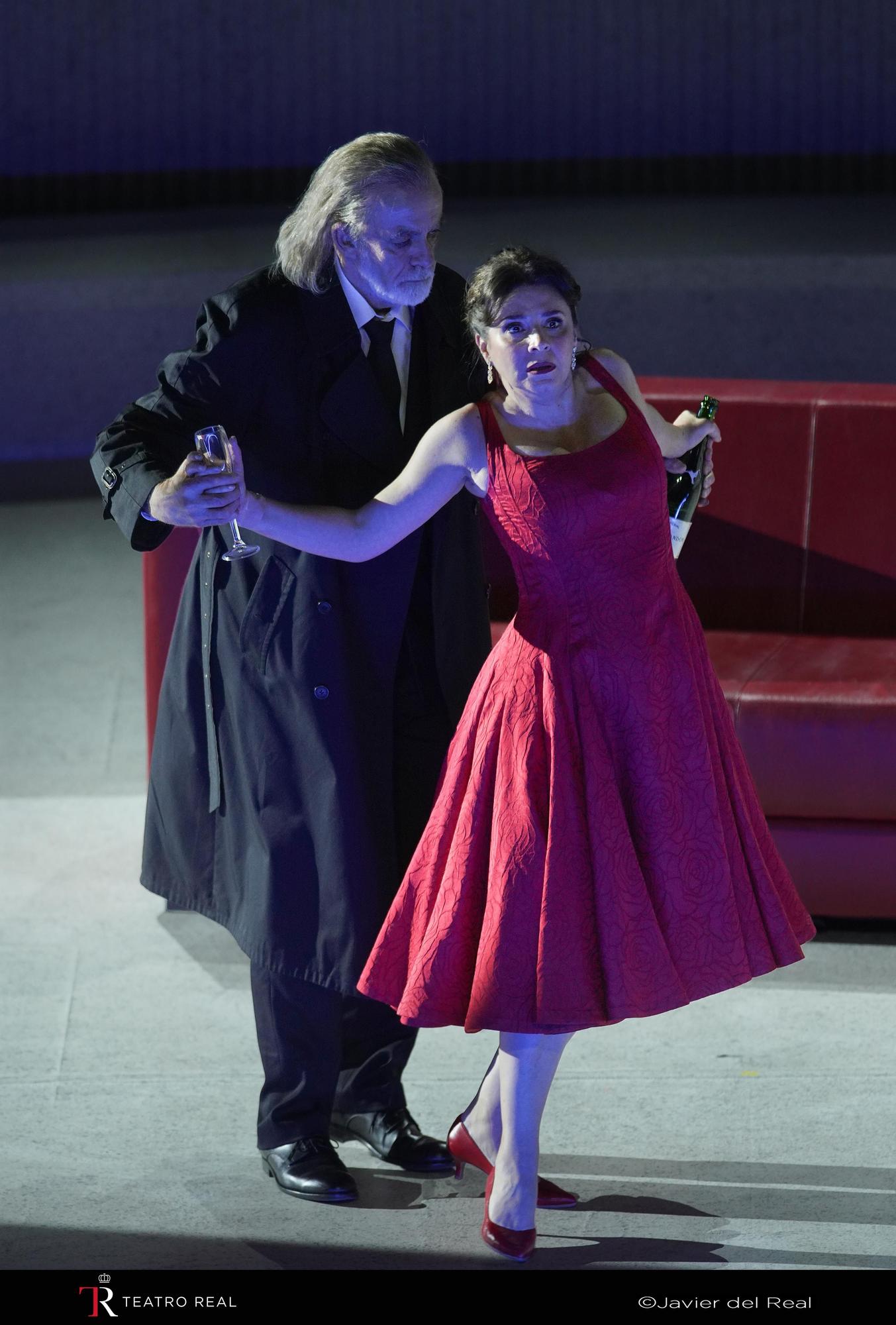Madrid, July 20, 2025.
For two decades, Juan Diego Flórez has been one of the favorite divos of Madrid audiences. Almost every year, he sings in the capital on one or another venue, especially at the Teatro Real, where he always delights the audience. However, most of these glorious nights have been recitals. Throughout his opera career in Madrid, his performances of complete operas have been few; unlike in Barcelona, where he has sung the best of his repertoire on stage during his prime. Even if he did sing several complete operas in Madrid, it has mostly been in concert versions: at the Teatro Real he sang Gluck's Orpheé and Eurydice in 2008, which was recorded on CD, I Puritani in 2010, and Les Pécheurs de Perles in 2013. But we have to go back to 2005 to remember his only run of performances in a staged opera in Madrid: Rossini's Barber of Seville, which he sang with María Bayo, Pietro Spagnoli, and Ruggero Raimondi, which was recorded on DVD, now considered a classic. He was close to singing in 2009 in a staged Rigoletto alongside Leo Nucci, but ultimately canceled and instead gave two recitals to compensate.
For this reason, when he was announced for three performances of Verdi's La Traviata in the Teatro Real 2024-2025 season, it was a huge surprise: for the first time in twenty years, he was to be seen performing in an staged opera in Madrid again with this opera, which he debuted in 2018, whose grand scene at the beginning of the second act is a regular feature in his recitals.
On Flórez's Alfredo Germont, some people has stated that he doesn't have neither the voice for the role, nor does he have enough volume. However, the 52-year-old Peruvian tenor's beautiful voice and stage experience help him carry the performance and to win over the audience. That elegant, refined singing, those beautiful high notes, that youthful tone are still present, even with a slightly more mature voice after three decades of career ,despite the fact that there are moments when the orchestra's volume is louder than his voice, drowning him out a bit. On the other hand, his ability to flatten certain notes and hold them for a long time in phrases like "Vi fia grato" before the toast, or in "Ah sí, da un anno"; or then to add a high note in "croce, croce e delizia" (cross, cross, and delight), lend a touch of vocal pyrotechnics to his rendition. It was to be expected that he would save his voice for his grand moment, the beginning of the second act: his voice sounded brilliant and vigorous in the phrase "E le pompose feste ove, agli omaggi avvezza" in the previous recitative, conveying the character's joy and enthusiasm. In the beautiful aria "De miei bollenti spiriti," his legato and ability to flatter into phrases like "io vivo quasi in ciel" (I live almost in heaven) were striking. In the following cabaletta that closes his grand scene, "O mio rimorso," he continued in his brilliant vein, closing the scene with a grand final high note in "Quest' onta laverò" (Quest' onta laverò). In the second half of the second act, the orchestra somewhat drowned him out, yet at the end of that act, his voice regained beauty in "Ah si che feci, ne sento orrore" (Ah si che feci, ne sento orrore), which he sang exquisitely, conveying the character's regret. His other great moment was the third act, where he was brilliant throughout, especially in the duet with the soprano, the famous "Parigi, o cara," in which he was splendid and sang exquisitely.
I had a hard time imagining how Flórez would perform in such an unconventional staging, especially in the second act, where his underwear is visible in one scene and is harassed by the chorus in another. But his personality is unmistakable: the tenor's vocal elegance also translates into elegance, gallantry, and sensitivity on stage. His Alfredo is a very refined and sensitive young man, not yet mature enough, who on the other hand doesn't measure the consequences of his actions.
For this performance, American soprano Nadine Sierra was scheduled to sing Violetta; however, unfortunately, due to a health problem, she had to cancel the performance and was replaced at the last minute by the Spanish Sabina Puértolas. Few imagined that the initial disappointment caused by Sierra's absence would give way to one of the most moving personal successes remembered at the Teatro Real. Puértolas, with her stage temperament and devotion, achieved enormous success. Her voice has a tone that ranges from youthful to dark, and in the first act, she seemed more consistent than Sierra's. In more dramatic moments, such as Alfredo, Alfredo di questo core, at the end of the second act, she was at her best. But the third act was yet to come. Already during the reading of the letter, she sounded heartbreaking, but during the Addio del Passato, that great aria, Puértolas unleashed her full dramatic potential in a moving version, especially in the two refrains she sang, "Ah, della traviata sorridi al desio," where her voice sounded beautiful and dramatic, conveying the character's profound sadness at her imminent death. And it was then, at the end of the aria, that the audience erupted in a loud and prolonged ovation for Puértolas, which caused her to finally break out of character and thank the audience, weeping because of the high excitement. The possibility of an encore was very close, and I could hear some people asking for it, but ultimately it didn't happen. Several possibilities reached my ears: that he didn't do it so as not to overshadow Sierra, or even that the director tried but couldn't because the performance continued. Throughout the rest of the performance, she continued at her inspired level. At the end, she continued to receive enthusiastic applause and ovations.
The role of Giorgio Germont was sung by the Albanian baritone Gëzim Myshketa, with a powerful and consistent voice, although somewhat guttural. Nevertheless, he did his best in the aria Di Provenza , the first half of which was beautifully sung.
Being in a better seat than i had on June 29, or perhaps because they had become more experienced as the performances progressed, I heard the orchestra and chorus better. I've already mentioned that Maestro Henrik Nánási 's conducting is more about accompanying the characters than shining with personality, but the slowness of his tempo allows us to enjoy the beauty of the preludes. The orchestra's strings are familiar with them, and a certain brilliance is evident when hearing them to play these two pieces. I found the clarinet accompanying the soprano in Ah fors'è lui equally inspired. And the chorus was extremely powerful this time in the middle of the first act, except when it's supposed to sing above, as it's hard to hear.
There is little to add to the rest: the supporting actors are equally good, especially the veteran Giacomo Prestia as the here sinister Death-Doctor Grenvil and Tomeu Bibiloni , a Baron Douphol with a powerful voice.
There's not much more to add about Willy Decker 's staging, as I told all about it in my review of June 29th. Decker's production is perhaps the Traviata of our time, taking the essence of the story and bringing it to modern times, where it remains relevant. The tragedy of an objectified woman, set in a vast, almost empty stage, which contributes to reveal the characters' feelings. It remains a tough yet fascinating production that has aged well.
There are only two performances left in this run of Traviatas, which have been a success for the Teatro Real, with first-class casts and a large audience. Saturday's performance (featuring Xabier Anduaga and Adela Zaharia) was broadcast on live streaming to many town halls, squares, and cultural centers in many Spanish cities and villages, in addition to the telecast in National Television. But those of us who attended last night, will remember the moving success of Sabina Puértolas, accompanied by the great Juan Diego Flórez, in a beautiful opera evening.





No hay comentarios:
Publicar un comentario